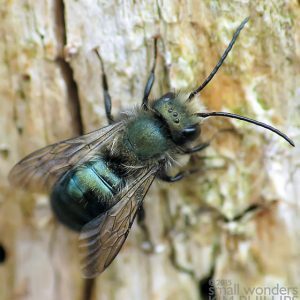We live in an SF world
Have you seen this?
Walmart just filed a patent for robot bees amid ongoing battle with Amazon
Although entertaining, I will just add that more than 20,000 species of bees have been described and named, including thousands of species that are actually native to the Americas, which honeybees are not. Honeybees have outcompeted and restricted the ranges of many native bees, just as imported starlings have outcompeted and restricted the ranges of native grackles. In my lifetime, grackles have become much less common than they used to be, which is a pity because not only are they native to North America, they are much, much prettier than starlings.
But back to bees.
The peculiar concern over the world starving for lack of honeybees is probably not quite the stupidest thing I’ve ever heard, but it’s right up there in the top ten. Especially since all cereal grains are grasses and all grasses are wind-pollinated.
But, true, bees are important pollinators for lots of flowers and crops that are animal-pollinated. This is an orchard bee, Osmia lignaria:
By an amazing coincidence, orchard bees are pretty often found in orchards — along with about a hundred other species of bees — where they do a good job pollinating fruit trees.
Many native bees are better, more efficient pollinators than imported honeybees. Offhand I would expect that establishing populations of native bees where people want them would be much cheaper and more effective than building millions of robot bees. Of course, supporting populations of native bees might require reducing the population of honeybees … oh, wait, natural causes seem to be helping out with that.
Next time you have the chance, you might go stand next to a flowering crabapple for a while and just watch to see what bees and other insects appear. Out here in the country where none of my neighbors are going out of their way to help honeybees crush native bees, I’ll easily see a dozen species of bees in a few minutes, plus syrphid flies. My favorite bees are the tiny metallic green ones. There are lots of even tinier black ones too.
While Wal-mart may want to come up with new technologies to develop, robot bees may not be the very best choice.
Please Feel Free to Share:













